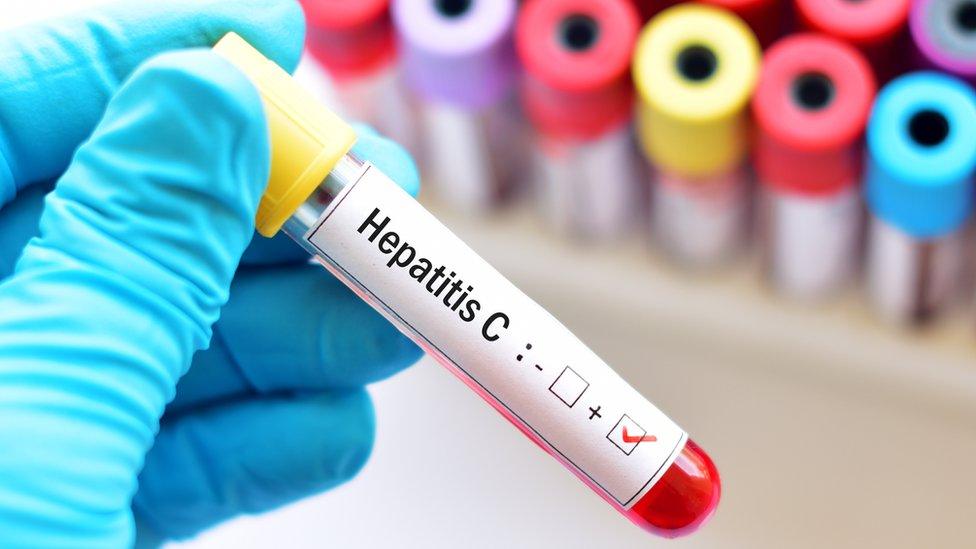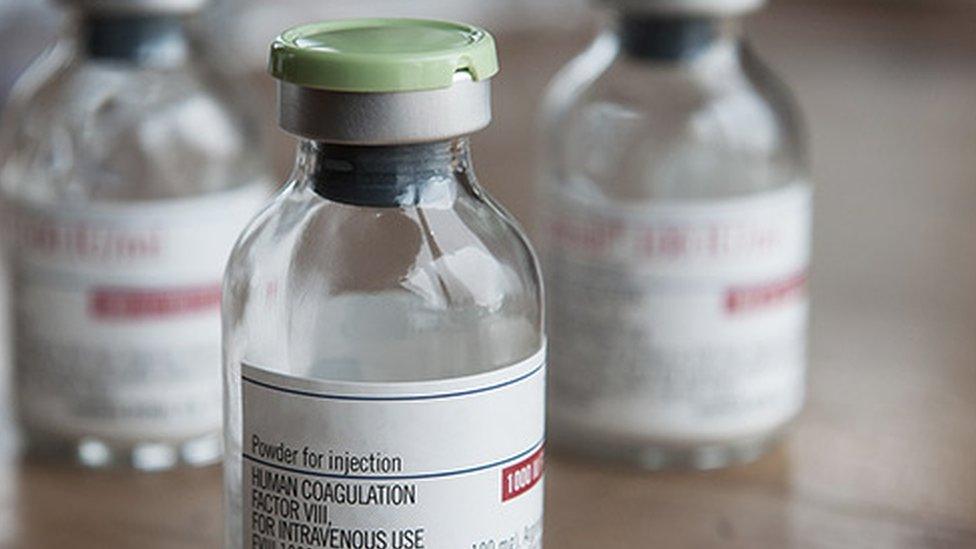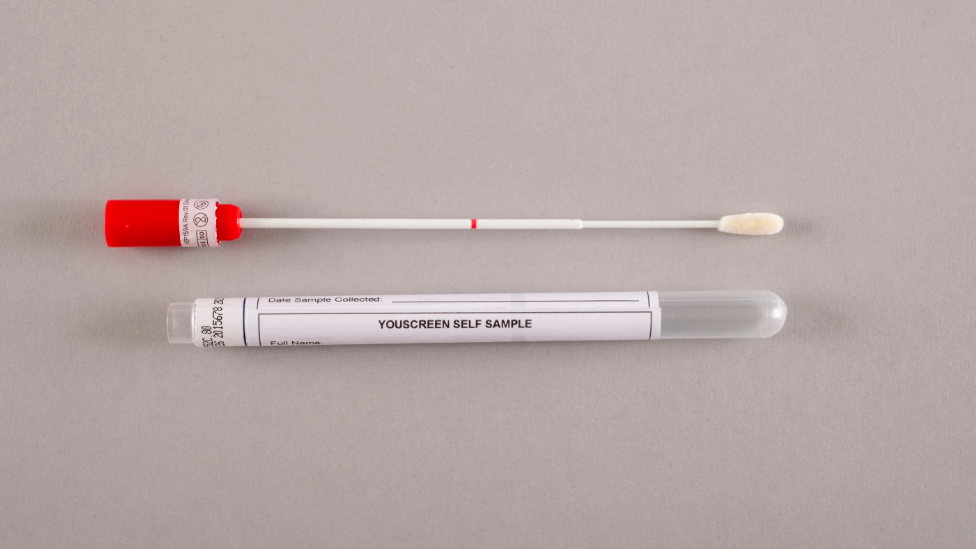Hepatitis C home test kits available to most-at-risk in England
- Published

Home test kits for a virus which attacks the liver are now available to order online in England, as the NHS tries to reach those needing treatment.
Hepatitis C tends to affect current or past drug users and people who have had contact with infected blood through a tattoo or medical procedure abroad.
It can lead to liver disease and cancer, but symptoms often go unnoticed for many years.
The NHS website says it can usually be cured by taking a course of tablets.
More than 70,000 people are thought to be living with the virus in England. Some may not know they have it, so would be unlikely to go to their GP for a test.
'My whole body hurt'
Shabana Begum, 55, from Yorkshire, found out she had hepatitis C in 2004 after feeling constantly unwell.
"Every hair on my body hurt, I had insomnia, flu-like symptoms and I was seeing my GP every three or four days," she said.
Shabana would cry for hours on end because her whole body was in pain.

Shabana Begum found out the hepatitis C virus had been in her body for 20 years
She was told she had been living with the virus for 15 to 20 years, and was able to link it to injections she had received when she moved to Pakistan as a teenager.
She remembers the corroded metal syringes that were used at the time, and now spends her time warning others to be cautious when travelling to South Asia, where hepatitis C is regularly found.
"It can be transmitted at the barber's, when getting piercings, a tattoo or other procedures using syringes," she says.
She also goes into communities to promote free, confidential testing.
"For people who feel they don't have time to see their GP or go to community events, they can log in online and just order a test."
The home tests, external involve a tiny amount of blood from a finger prick being dropped into a test tube, which must then be posted to a lab for analysis.
Those who receive a positive test result will then be contacted and referred for treatment, NHS England says.
Rachel Halford, from charity The Hepatitis C Trust, said it had never been easier to find out if you have hepatitis C.
She said people could be exposed to the virus in a number of ways "including having a blood transfusion before the early 1990s, having medical treatment or a tattoo abroad, or via injecting drugs use".
The disease is endemic in some countries in South Asia including Pakistan, India and Bangladesh, making the risks of being infected higher.
She told BBC Breakfast: "I think one of the problems about Hepatitis C is you can have it for a long time without knowing that you've got it, because the symptoms are very similar to other things.
"So this is a really easy and safe and confidential way to get a test."

What are symptoms of a hepatitis C infection?
Most people do not seem to experience any noticeable symptoms when first infected. Some 25-35% do, but the symptoms often resemble other illnesses.
They can include:
slight fever
fatigue
loss of appetite
stomach pain
nausea and vomiting
About 20% of people who develop symptoms experience jaundice (a yellowing of the skin and eyes).
Source: The Hepatitis C Trust, external

It is estimated that there were 74,600 people living with hepatitis C in England in 2021, external - many fewer than just five years before, thanks to better access to antiviral treatments.
Deaths from the virus have also fallen - by a third, from 482 in 2015 to 314 in 2020 in England, and by a similar amount in Scotland, Wales and Northern Ireland.
But there is concern that a lack of access to drug services during the Covid pandemic may have halted further progress.
NHS national medical director Prof Sir Stephen Powis said the NHS was "on track" to eliminate hepatitis C as a public health threat by 2030.
"As patient numbers get smaller and each remaining case becomes harder to find and cure, it's vital we offer easy-to-access self-test kits - especially for those who have been exposed to the virus but may be reluctant to come forward," he said.
In the UK in the 1970s and 80s, about 3,000 people died after being given blood products via NHS treatments containing HIV and hepatitis C. A public inquiry on the contaminated blood scandal started in 2019 and is still running.
- Published30 March 2023

- Published6 February 2023

- Published21 May 2021

- Published24 February 2021

- Published3 April 2019
